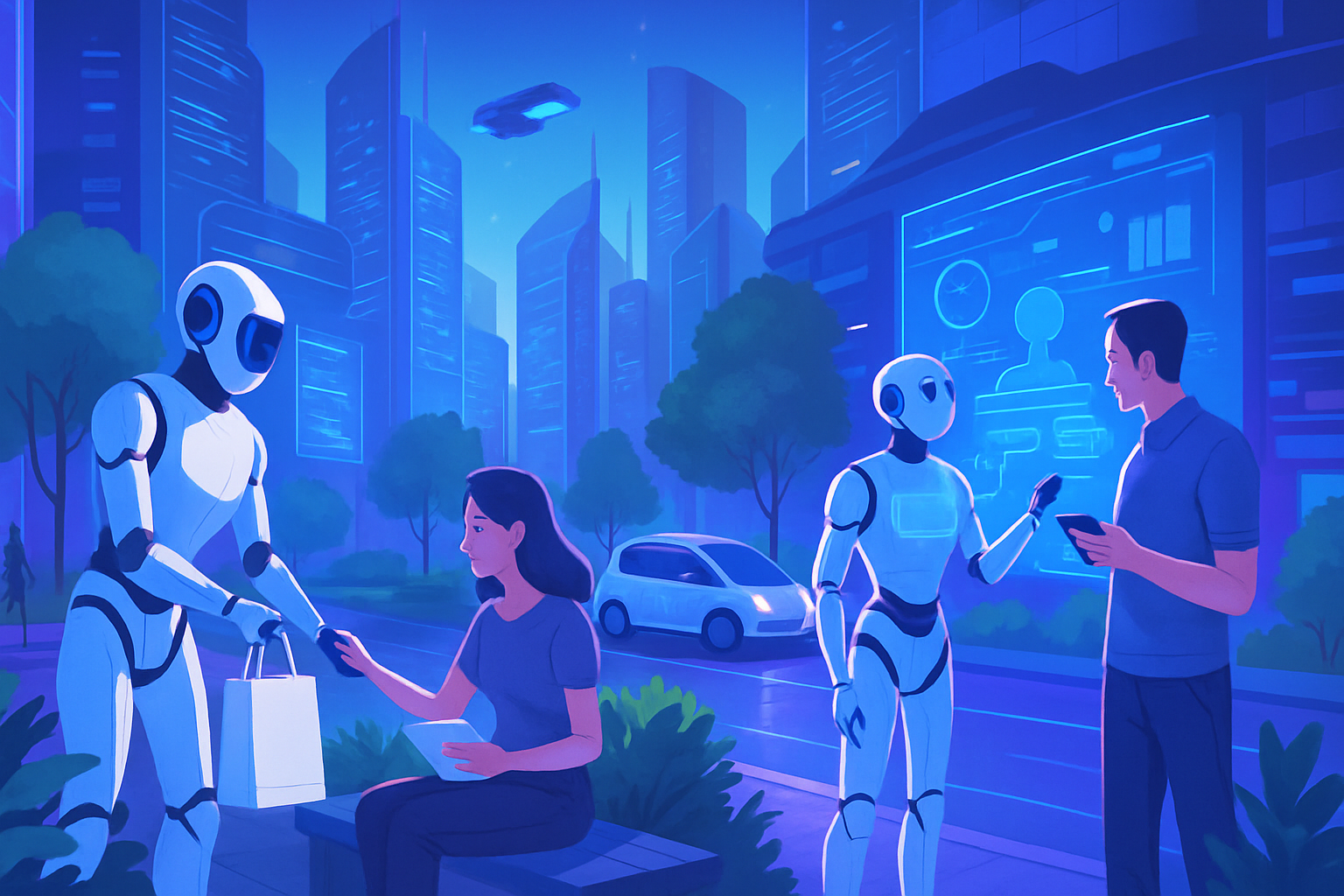The impact of artificial intelligence on our daily lives continues to evolve. This technology is redefining how individuals engage in their daily activities. From online shopping to managing healthcare, it radically transforms how we operate. _The accessibility of services is improving_, facilitating transactions that are now secure and swift. In the medical field, _diagnostics are becoming more precise_, allowing for more effective patient care. Companies are also relying on innovative tools to optimize their customer support, thereby increasing satisfaction. This observation hints at a future where AI becomes essential in every aspect of our existence.
Revolutionized Payment Methods
The dominance of cash payments has undergone a profound change in recent years. Digital payment methods, whether online or in-store, have diversified, catering to various needs. The rise of artificial intelligence in this area has significantly enhanced security and user experience.
Enhanced Security of Transactions
Using AI for financial transactions enables the detection of fraudulent activities by analyzing payment patterns and user behaviors. For example, in Bitcoin transactions, AI identifies any anomalies that could compromise the security of personal data. Thus, protection against malicious actors becomes more effective.
Notable Advances in Health
The healthcare sector has benefited from advancements in artificial intelligence, facilitating the diagnosis of various conditions. The machine learning algorithm improves the accuracy of diagnoses, allowing healthcare professionals to intervene early.
Personalization of Medical Care
Treatments can now be tailored to individual patient data, thanks to AI. The use of predictive analytics optimizes resource allocation, thus maximizing the effectiveness of interventions.
AI and User Experience on Streaming Platforms
Streaming platforms like Netflix use AI to anticipate users’ viewing preferences. Analyzing viewing behavior and ratings allows for personalized recommendations.
Behavioral Analysis and Recommendations
Machine learning algorithms identify specific patterns related to users’ tastes. Every second watched on the platform helps improve the viewing experience, making the service increasingly appealing.
Optimized Navigation through AI
Modern smartphones facilitate travel between different destinations. Thanks to artificial intelligence, these devices analyze real-time traffic data and road conditions to suggest the most efficient route.
Voice Recognition and Navigation
Voice recognition allows users to navigate without having to handle their device. This significantly improves safety and practicality while driving.
Effective Customer Support Thanks to AI
Companies are increasingly integrating AI into their customer support services. The implementation of chatbots and virtual assistants enables instant responses to customer inquiries.
Time Savings and Customer Satisfaction
Chatbots reduce wait times and allow customers to quickly resolve their concerns. Human teams, trained to handle complex cases, collaborate with these artificial intelligences to ensure fast and efficient service.
Societal Implications of AI
The impact of artificial intelligence is felt in many areas of daily life. Technology is increasingly adopted by various sectors to enhance the lives of individuals around the world. For example, a study indicates that 93% of young people plan to use AI-based tools by 2025.
The repercussions also extend to the perception of reality. Technological advances raise pertinent questions about our relationship with information, as indicated by studies on the impact of AI on how we perceive the world.
As AI transforms key sectors such as healthcare and financial services, its role continues to grow. Online research is also evolving, optimizing all processes of innovation and reliability.
An exemplary collaboration between IBM and Roche highlights the use of AI to manage diabetes, anticipating levels of glycemia. This approach underscores the potential of artificial intelligence in the medical sector, proactively guiding treatments.
The changes brought about by artificial intelligence raise challenges and opportunities, making it an inevitable tool for the future.
Finally, the success of AI relies on its adoption and integration, making its role invaluable in our daily lives in the long term.
Frequently Asked Questions about the Impact of AI on Our Daily Lives
How does artificial intelligence improve payment methods?
AI optimizes transactions by analyzing purchasing behaviors and detecting fraudulent activities, thereby making payments safer and faster.
How does AI influence the healthcare sector?
It enhances diagnostic accuracy through machine learning algorithms and enables the creation of personalized treatment plans based on patient data.
How does AI personalize user experience on streaming platforms?
AI algorithms analyze viewing history to recommend content suited to individual tastes, thus enhancing the user experience.
What is the importance of AI in customer support services?
AI-powered chatbots allow for instant responses to customer inquiries, reducing wait times and improving overall satisfaction.
How does AI facilitate daily commutes?
AI applications analyze real-time traffic data and suggest the best routes, making transport smoother and more efficient.
What are the benefits of AI in resource management in the medical sector?
Predictive analytics allow for better resource management, optimizing allocation and improving treatment outcomes.
How does AI help in detecting fraudulent behaviors online?
It monitors payment patterns to identify anomalies, protecting users against identity theft and financial fraud.
What are the implications of AI on our daily lives in 2025?
AI is expected to continue simplifying and improving everyday interactions, influencing various sectors like finance, healthcare, and entertainment, making our lives more efficient.






